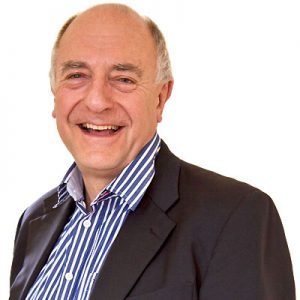A mix of entrepreneur and academic
This is not your typical bio – it’s not going to try to impress by listing a string of achievements. You can read that on LinkedIn. Rather, this is how and why I came to write The Secondary Mod.
Introducing myself
In 1949 I was born into a working class family living in Walthamstow, a predominantly working class East London borough. My family was not particularly poor, but certainly not wealthy.
In 1961 I took the 11-plus exam and failed. I never expected to pass, my parents never expected me to pass and for sure my teachers didn’t expect me to pass. Only three of my junior school classmates passed – failing was the norm; passing was the exception.
The early years
And so in 1961 I went to George Gascoigne Secondary Modern. The first three years flew by and during my third year I decided to stay on and ‘get some exams’. Most of my classmates did the same.
The deal was that the school would match your hard work to ensure your success. I left with six ‘O’ levels and lots of happy memories. Many of my classmates did equally well.
My secondary mod experiences
I then jumped onto the academic conveyor belt. I took my ‘A’ levels at the local grammar school (George Monoux), went to Sussex University and got a degree in physics. A few years later I gained an MBA (Cranfield)
Lots of exams
At that time the computer industry was the place to be and so I started working for IBM. Then came five years working for PA Consultants, enabling me to travel and work for the world’s largest technology companies. One of them offered me a job, a big salary and the title ‘marketing director’ (Datapoint).
Around this time, I realised that the media’s portrayal of secondary moderns (uniformly negative) was nothing like my experiences at George Gascoigne. It caused a low-grade irritation that got worse with age. I knew that many of my school mates had done very well – one had become an MP. These people were not the failures I kept reading about. I resolved that when I had the time, I would put the record straight.
Negative media portrayal of secondary moderns
By now I was busy running my own consultancy company. I worked for numerous clients, corporate and government, and then I discovered the internet. To help me become a ‘guru’ I wrote a book explaining how it was going to change the world. That opened the door to academia. I lectured at London Business School and Southampton University, as well as working for clients. Around this time I began collecting materials about secondary moderns.
Experience of academia
As the excitement of the dot.com world subsided I looked for the next challenge. Everybody knew the population was ageing but government and business were doing nothing about it. I wrote three books on this subject and travelled the globe, consulting and lecturing. Meanwhile, the file about secondary moderns got thicker.
Author of business books
I reached retirement having written four books, worked in business and academia and analysed (and hopefully solved) countless management problems. It was now time to use my experience and focus my energies on telling the true story of secondary moderns.

